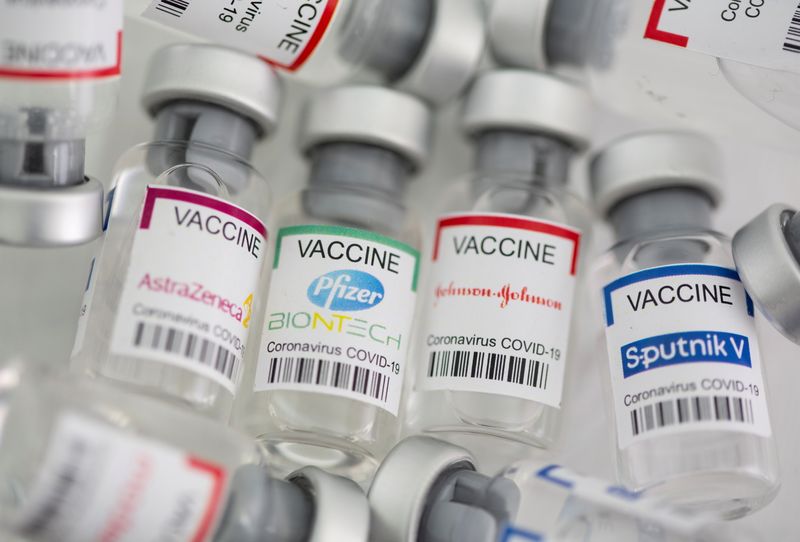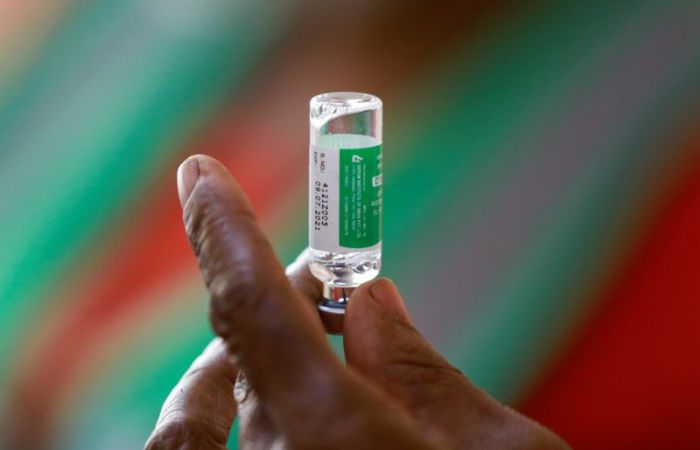(Reuters) – EU health agencies have recommended that COVID-19 vaccines be mixed and matched for both initial courses and booster doses as the region battles rising cases ahead of Christmas.
Evidence suggests that the combination of viral vector vaccines and mRNA vaccines produces good levels of antibodies against the coronavirus causing COVID-19, the European Medicines Agency (EMA) and the European Centre for Disease Prevention and Control (ECDC) said in a joint statement on Tuesday.
Such an approach “may offer flexibility in terms of vaccination options, particularly to reduce the impact on the vaccine rollout should a vaccine not be available for any reason”, the EMA and ECDC said, while urging people to get fully vaccinated.
Their endorsement comes after a major study on Monday said a first dose of AstraZeneca or Pfizer-BioNTech shots followed by a Moderna vaccine nine weeks later induced a better immune response.
However, the EMA and ECDC said more research was needed to support the use of mixing and matching in people with weak immune systems, such as older people and those with chronic conditions like cancer, and for two-dose mRNA vaccine regimens.
Longevity of protection offered by vaccines has been under scrutiny and the world is scrambling to trace the Omicron variant as governments impose fresh restrictions, and speed up rollouts of vaccines to children and booster doses.
Official rollout of vaccines for 5-11 year olds will start next week in Europe.
The EMA and ECDC recommendations are also meant to help EU member states with their own vaccination campaigns before any formal EU-wide approval as the health agencies continue studying data on mixing vaccines.
The United States has given the green light to mix and match, while the World Health Organization is assessing the approach.
The EMA and ECDC’s review did not consider vaccines that are not approved in the European Union. COVID-19 shots from AstraZeneca, Pfizer-BioNTech, Moderna and Johnson & Johnson have been authorised for use in the region.
Many countries have deployed a mix and match well before robust data was available as nations faced soaring infection numbers, low supplies and slow immunisation over some safety concerns.
(Reporting by Pushkala Aripaka in Bengaluru; Editing by Maju Samuel and Nick Macfie)

























